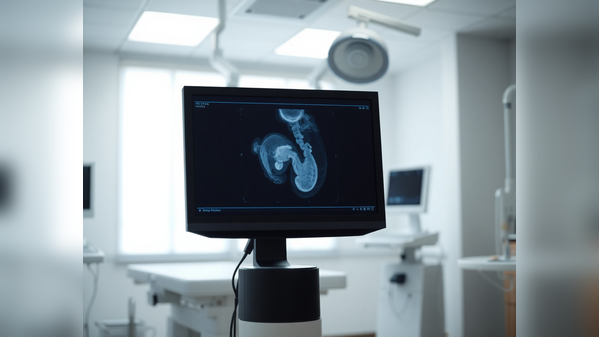AI: the new super sleuth in the fight against Ovarian cancer
Synopsis: A new study reveals AI’s uncanny ability to detect ovarian cancer more accurately than human doctors. While it’s not quite ready to replace your physician, this breakthrough tool might just be the sidekick your doctor didn’t know they needed!
AI Outshines the Pros in Ovarian Cancer Detection
Ovarian cancer, often caught too late, may soon meet its match with AI. A study from Sweden’s Karolinska Institutet found AI models excelled in spotting cancerous ovarian tumors. Using over 17,000 ultrasound images, the AI's accuracy of 86% trumped human experts at 82%. It’s like the AI just aced the exam while the human doctors were still taking notes. Who knew machines could be such overachievers?
Saving Time, Saving Lives: AI to the Rescue
The AI breakthrough doesn't just beat doctors at reading scans; it can also reduce waiting times and avoid unnecessary surgeries. According to the study’s author, Elisabeth Epstein, this could make diagnostics accessible, especially in places with fewer expert examiners. If you've ever waited forever for test results, this could be the fast-track solution you've been hoping for. Cancer doesn't wait; neither should your diagnosis.
Will AI Finally End the Ovarian Cancer Mystery?
The study proves AI’s potential to reduce errors and misdiagnoses, addressing the shortage of trained professionals. But while it helps experts interpret findings, it’s not quite ready to wave goodbye to doctors. AI still needs further validation and real-world testing. Imagine a world where AI partners with doctors, tackling the tough cases without a hitch. That dream might be closer than we think—AI could soon be the Sherlock Holmes of ovarian cancer.
Potential Pitfalls: AI’s Achilles’ Heel
Despite the excitement, AI’s journey to widespread use isn’t without bumps. Dr. Harvey Castro points out that the technology could struggle with biases and a lack of transparency. Plus, it's not yet approved for routine clinical use, and we need more testing. It’s like having a shiny new car with no license—looks promising, but it’s still got a way to go before it’s on the road for good.
